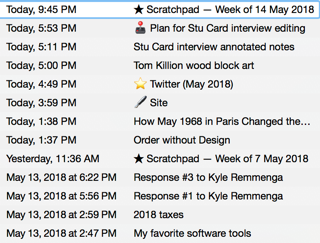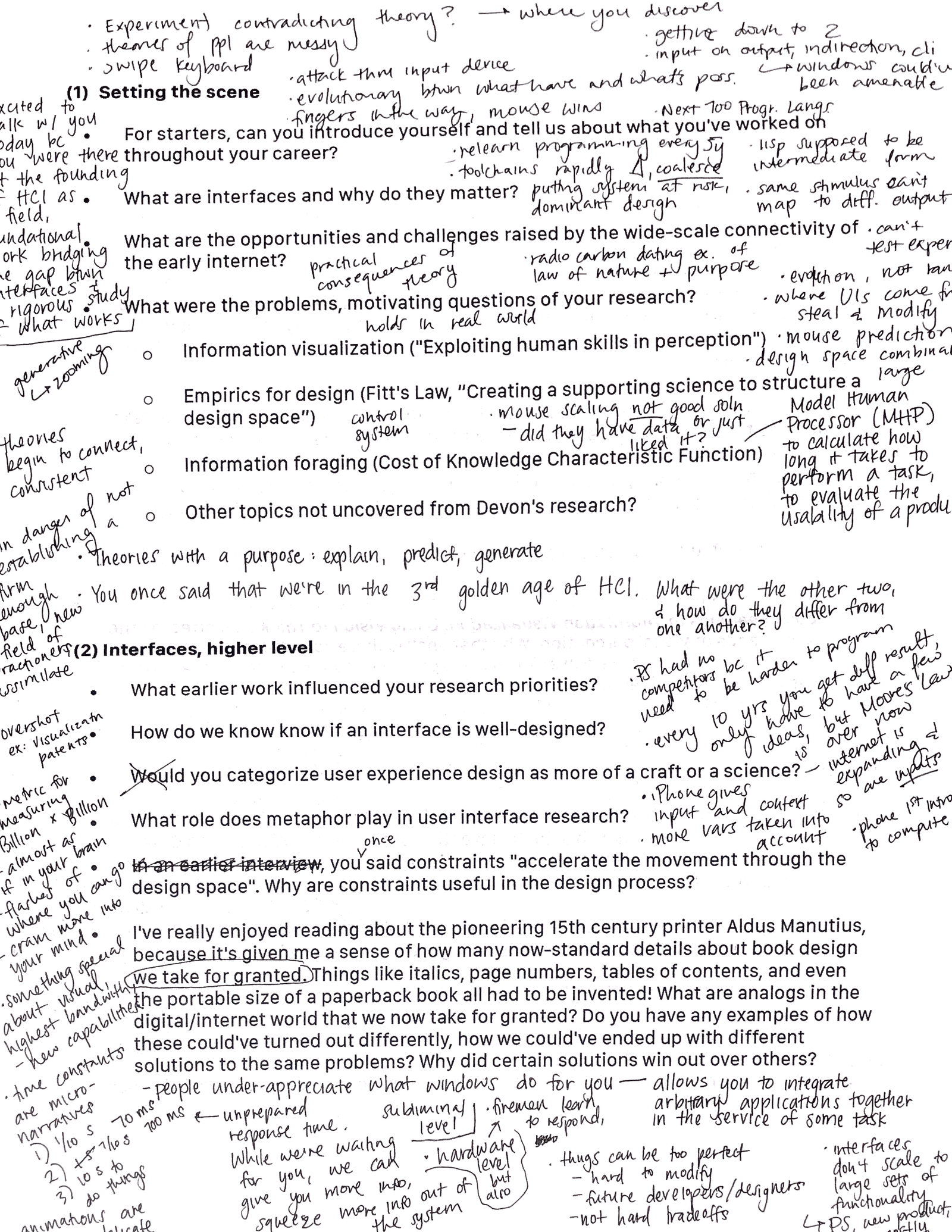Memex: My personal knowledge base
May 16th, 2018
Epistemic status: This is a quick write up of my personal experience using Evernote as a PKB. The ideas/processes mentioned in here might work for others too, but I'm not prescribing them! There may be something that would work even better for you, and perhaps for me for that matter. (If you have suggestions please do tell me 🙂)
Epistemic effort: I wrote up an email response to Nick quickly, and then I went back through it once to make sure nothing was totally impossible to understand. Then I turned it into a blog post, because I realized I'd written a lot and might as well share it. This involved a tiny bit of tweaking and formatting. Overall took about 1h to write, so not a masterpiece. Just some fun, barely-filtered thoughts that might be useful to you.
I was emailing back and forth with Nick Nikolov, and he asked me about how I structure my personal knowledge system. The glorious Liz Voeller had just asked me a similar question over coffee earlier that day, so I figured I might as well share the (slightly tweaked) answer.
It's a little hard to nail down any hard-and-fast rules, but here's a rough outline of my process. Unless otherwise noted, all of this lives inside of Evernote.
# Weekly scratchpad
Each week I have a top-level note titled "★ Scratchpad — Week of DD Mo YYYY". This is kind of a "table of contents" for the week, and its where I list my priorities, tasks, and things to read, and at the bottom of the post I have a bunch of bullet points of random thoughts I want to jot down. These thoughts sometimes turn into bigger notes, at which point I extract them into their own note and link them there.
The structure of my Scratchpad evolves a tiny bit each day/week, so if you looked back through these Scratchpads and the notes they link to you'd see a gradual shift in approach. The way I was doing it 1y ago was almost totally different.
I used to be obsessive about storing tasks as highly structured data in various task management tools, but then I realized it was taking far more effort to maintain and worry about edge cases than value it was adding. Plus, once you complete a task you don't really care about the data anymore. Plaintext checkbox lists do a plenty good job, and they're cheap. (And they're still pretty easy to refer back to afterwards anyways!)
Having a consistent format for the title is useful for the not-so-infrequent times I want to be able to look back at a note and put it in context with the other Scratchpads. The ★ makes it really easy to find, which is useful because this note is the one I refer back to most frequently. I've started using emoji in other notes I want to have stand out, which is really useful (and fun!). You can see some of my titles here as an example:

# Tables of contents
I often have "tables of contents" for other things besides just my weeks, especially for complex projects that span multiple weeks. The "🕹 Plan for Stu Card interview editing" note is a good example of this. It's an interview video I shot a few weeks back that has lots of different people involved, lots of steps, and lots of documents/files with many versions, so this note helps me keep a holistic view but also to dive into the details when I need to. Another example is my "wtd" note, which stands for "want to do". It's basically a list of bucket lists, like projects, weekend activities, books, restaurants, movies, etc that I want to do at some point. Somehow it only ever grows longer, even as I tick items off the list...
# Clipping
I clip nearly everything that I read to Evernote, unless I think it was totally useless. I also use Highly for annotating/highlighting things I've read, and then I use the Evernote Web Clipper to grab the highlighted copy to store. This makes referring back to the notes much cheaper, because I've already emphasized the stuff I find useful. Highly's also nice because it automatically shows the highlights on the page when you open the original webpage.
I also obsessively use Evernote's document capturer, which creates what look like really nice scans of paper and text in the real world. It was more useful when I was in school and had lots of math, CS, and physics problem sets that I solved with pen and paper. Here's an example scan from just last week:

I don't really keep it in sync with other information tools. I keep most of my stuff in Evernote, and for the major exceptions (Github, Notion, Slack, Twitter, email) I've accepted the fact that it's expensive time-wise to worry about that, and I think my intuitive brain overrates how valuable that would be in the first place. This is similar to what I said about task managers before. As a software engineer I feel like it's important for all that stuff to be synced, but in practice this works just fine (with a few exceptions, I'll admit).
I also do duplicate the most important stuff directly in Evernote, as if it were the source of truth. Particularly long emails (like this one!) are a good category of example; I will usually draft messages in Evernote then transfer them over to email only once they're done. This means I have a record of all the emails I've put thought into directly in Evernote, which also serves as useful fodder for future thoughts/writing.
I use Evernote to power my blog, too, which plays a big role in my workflow.
I previously had a custom, self-hosted static site. (I used DocPad, if you're curious.) It felt like the virtuous developer-y thing to do, but it was annoying to add/update posts, and whenever my dependencies would get out of date I'd spend more time managing those, bogging me down from actually publishing content.
I also briefly used Medium, but that just felt so generic. I couldn't use my own custom domain, and I had no control over the structure of the site. Bleh.
Now, I use Postach.io, which just takes posts from a specific notebook and publishes them to my site. It's dramatically decreased the friction for writing, which is so important. It's also helpful to have my blog CMS in the same place as my more raw notes—they develop in the Scratchpad or extracted notes over time, and then when I realize that they're at a place where they're publishable it's just a matter of cleaning them up a tiny bit, changing the notebook, and marking them with the #published tag. Highly recommend it!
Keep in touch!